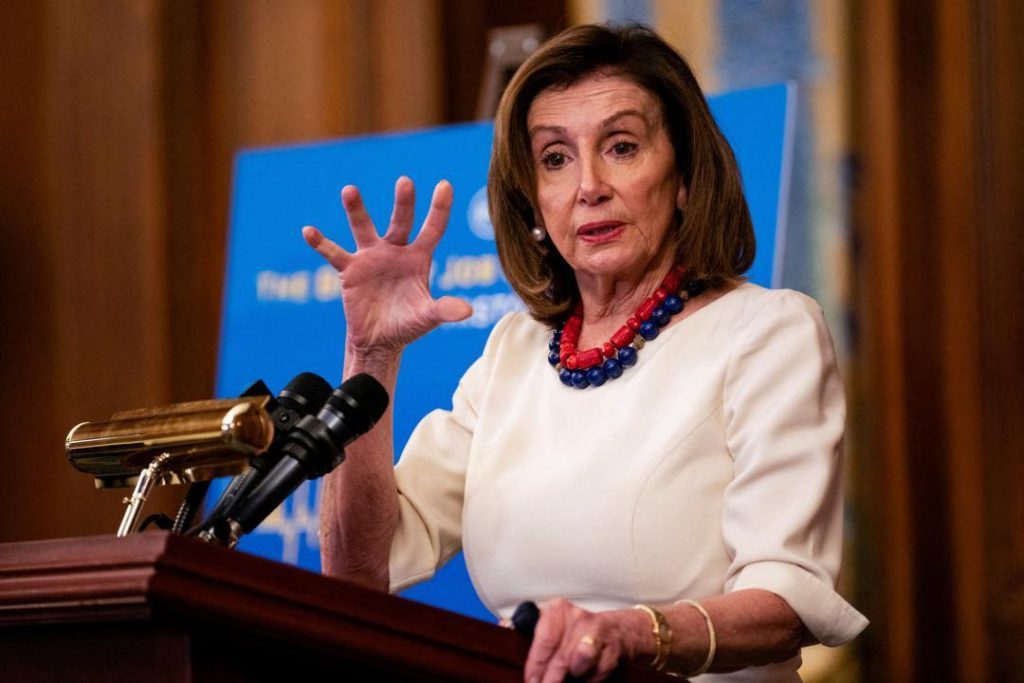
What is the PELOSI Act & why is it named after former US Speaker Nancy Pelosi?
The Preventing Elected Leaders from Owning Securities and Investments (PELOSI) Act, reintroduced by US Senator Josh Hawley, has sparked a heated debate in the United States. The bill aims to prohibit lawmakers and their spouses from holding or dealing in stocks while holding office. But what is the PELOSI Act, and why is it named after former US Speaker Nancy Pelosi?
The PELOSI Act is a proposed legislation that seeks to address the long-standing issue of conflicts of interest among elected officials in the United States. The bill would prohibit lawmakers and their spouses from owning or trading individual stocks, as well as from participating in initial public offerings (IPOs) or other securities transactions. However, lawmakers would still be allowed to invest in mutual funds (MFs), exchange-traded funds (ETFs), and Treasury bonds.
The idea behind the PELOSI Act is to prevent elected officials from using their positions to benefit financially from insider knowledge or to influence policy decisions for personal gain. The bill is named after former US Speaker Nancy Pelosi, who has been accused of enjoying significant stock market gains during her term as Speaker of the House of Representatives.
Pelosi’s husband, Paul Pelosi, has made millions of dollars through his investments in tech stocks, including Apple, Google, and Amazon. Critics have argued that this raises concerns about conflicts of interest and the potential for insider trading. The PELOSI Act is an attempt to address these concerns and ensure that lawmakers are held to a higher standard of ethical behavior.
The bill has been met with both support and criticism from lawmakers and experts. Proponents of the bill argue that it is necessary to restore trust in government and to prevent the influence of special interests. Opponents argue that the bill is an overreach of government power and that it would unfairly penalize lawmakers for their investments.
Some lawmakers have also argued that the bill is too broad and would unfairly impact ordinary Americans who invest in mutual funds or ETFs. Others have pointed out that the bill does not address the underlying issues of corruption and crony capitalism that plague the system.
Despite the controversy, the PELOSI Act has gained support from some unlikely quarters. For example, the anti-corruption group, Citizens for Responsibility and Ethics in Washington (CREW), has endorsed the bill, arguing that it is a necessary step towards transparency and accountability in government.
The PELOSI Act is not the first attempt to address conflicts of interest among lawmakers. In 2012, the Stop Trading on Congressional Knowledge (STOCK) Act was passed, which prohibited lawmakers and their staff from using non-public information for personal financial gain. However, the STOCK Act has been criticized for its loopholes and lack of enforcement.
The PELOSI Act is a more comprehensive approach to addressing conflicts of interest, and it has been praised by some as a major step towards reform. However, the bill still faces significant opposition, and its fate remains uncertain.
In conclusion, the PELOSI Act is a proposed legislation that seeks to address conflicts of interest among lawmakers in the United States. The bill would prohibit lawmakers and their spouses from owning or trading individual stocks and from participating in IPOs or other securities transactions. The bill is named after former US Speaker Nancy Pelosi, whose husband has made millions of dollars through his investments in tech stocks.
While the PELOSI Act has its supporters and critics, it is an important step towards restoring trust in government and preventing the influence of special interests. As the debate over the bill continues, it is clear that the issue of conflicts of interest among lawmakers is a complex and contentious one that requires careful consideration and debate.






